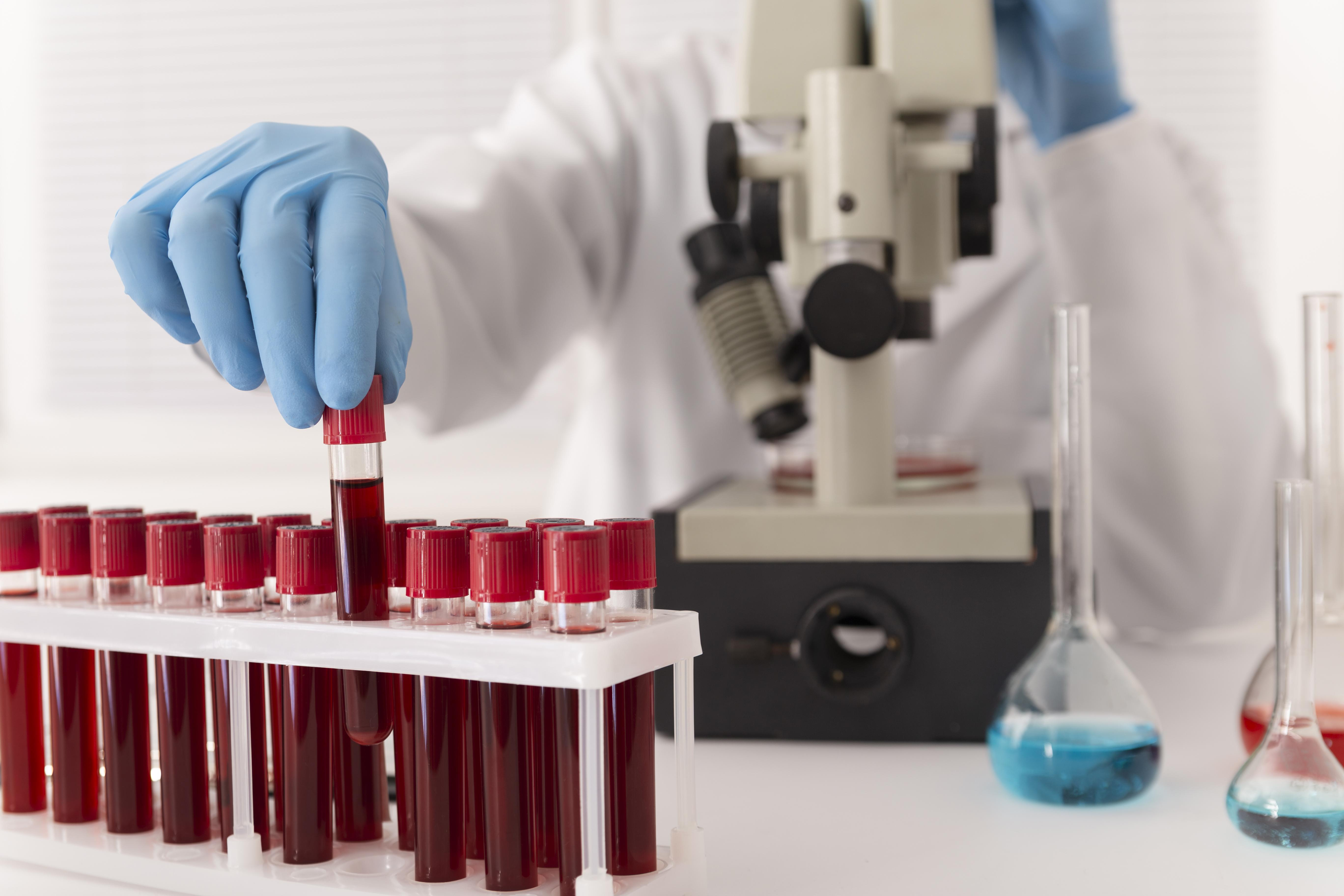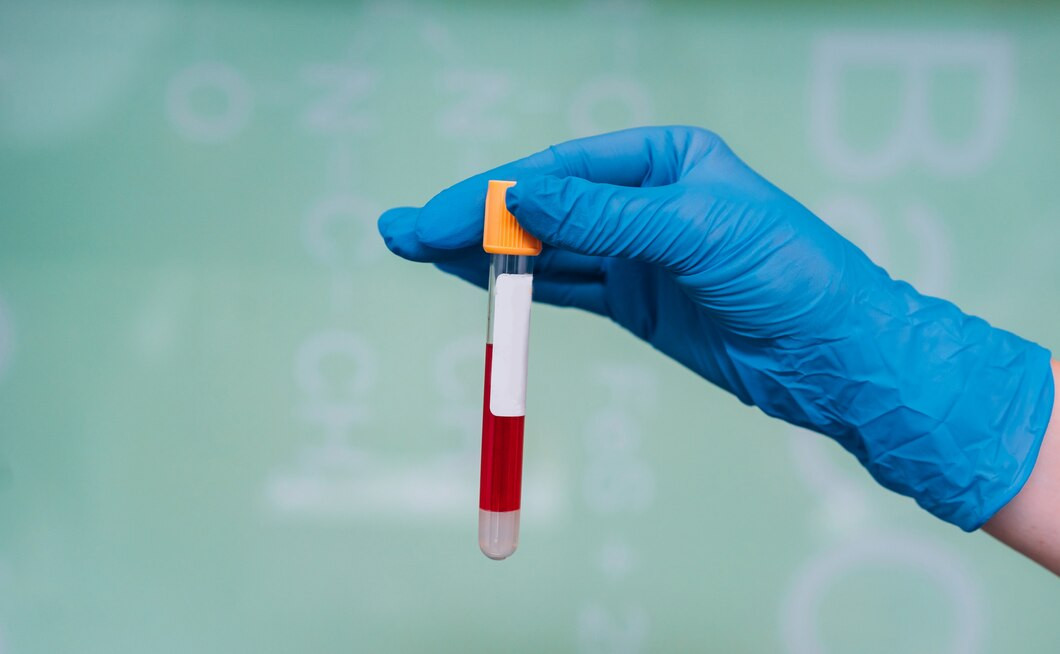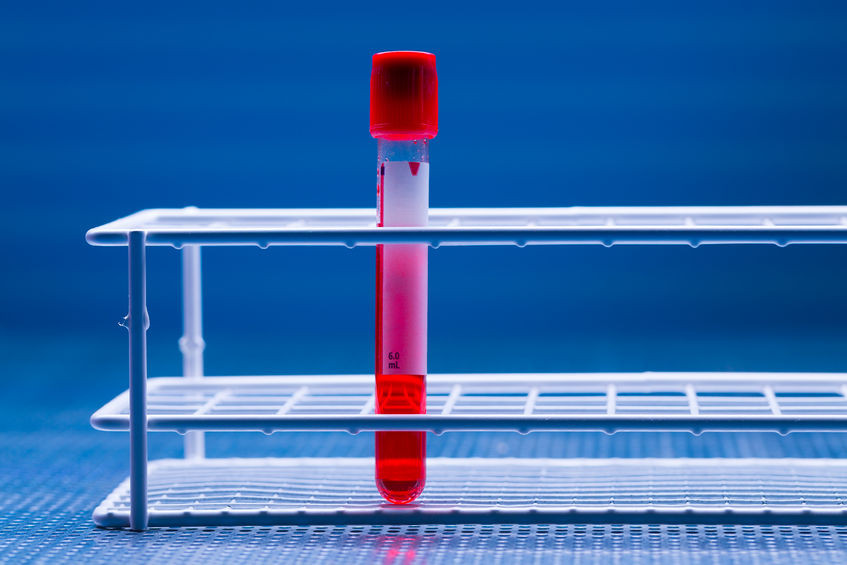Definisi
Kelenjar tiroid menghasilkan berbagai komponen kimia salah satunya adalah hormon yang mengendalikan fungsi tubuh. Kelenjar tiroid berbentuk seperti kupu-kupu ini terletak dibawah laring dan bertugas mengatur regulasi metabolisme melalui pelepasan hormon di dalam pembuluh darah. Tiroid berfungsi untuk memproduksi hormon yang meregulasi denyut jantung, tekanan darah, suhu tubuh, dan berat badan.
Hormon utama yang dibentuk oleh tiroid adalah T4 atau tiroksin. Sel tubuh lalu akan mengkonversi T4 menjadi T3 atau Triiodothyronine. T3 bertanggung jawab untuk berbagai fungsi tubuh bersama dengan T4, meliputi mengatur detak jantung, suhu tubuh, dan metabolisme yang dapat memengaruhi berat badan. Mayoritas T3 terikat ke protein tubuh dan T3 yang tidak terikat pada protein disebut sebagai T3 bebas dan bersirkulasi melalui darah.
Pemeriksaan ini merupakan pemeriksaan tiroid terkait protein di dalam darah. Melalui pemeriksaan ini, dokter akan mendapatkan info tambahan dengan pemeriksaan lain seperti pemeriksaan T3 dan pemeriksaan T4, dimana pada pemeriksaan tersebut menunjukkan banyaknya hormon tiroid dalam bentuk bebas di dalam tubuh.
Indikasi
Pemeriksaan T3 digunakan untuk membantu:
- Mendiagnosis hipertiroidisme, suatu kondisi di mana kelenjar tiroid Anda membuat terlalu banyak hormon tiroid. Tes ini juga dapat membantu mencari tahu apa yang menyebabkan kondisi tersebut
- Mendiagnosis gangguan hipofisis. Hipofisis adalah kelenjar seukuran kacang polong di dasar otak Anda. Kelenjar ini menghasilkan hormon yang disebut TSH (thyroid stimulating hormone). TSH memberi sinyal ke tiroid berapa banyak T3 dan T4 yang harus diproduksi. Jadi, kadar T3 yang tidak normal mungkin merupakan tanda masalah hipofisis
- Memantau pengobatan untuk penyakit tiroid, termasuk hipertiroidisme dan hipotiroidisme, yaitu ketika kelenjar tiroid membuat sedikit hormon tiroid
Pemeriksaan T3 biasanya dilakukan dengan tes darah lainnya seperti pemeriksaan TSH dan T4.
Beberapa gejala dari hipertiroidisme seperti:
- Rasa cemas, gugup, mudah tersinggung
- Kehilangan berat badan
- Tremor pada tangan
- Detak jantung tidak teratur
- Gangguan pencernaan
- Goiter (pembesaran kelenjar tiroid)
- Sulit tidur dan kelelahan
Kontraindikasi
Pemeriksaan T3 Uptake dalam Darah dapat dianggap aman dan risiko terkait sedang. Tidak ada kontraindikasi khusus terkait pemeriksaan T3 Uptake. Dokter akan memberitahu jika Anda perlu berhenti minum obat sebelum pemeriksaan. Tetapi jangan berhenti minum obat apa pun kecuali dokter yang memberikan instruksi.
Persiapan Sebelum Pemeriksaan
Tidak ada persiapan khusus sebelum melakukan pemeriksaan T3 Uptake. Informaskan pada dokter terkait obat-obatan, vitamin, suplemen, dan mineral yang Anda konsumsi serta bila kondisi lain. Pastikan kondisi Anda tenang dan tidak stres.
Diskuskan dengan dokter terkait obat yang Anda konsumsi dan yang perlu dihentikan sebelum pemeriksaan. Pastikan Anda mengenakan pakaian yang longgar dan nyaman sehingga mempermudah mengambil sampel darah.
Prosedur Pemeriksaan
Petugas laboratorium akan mengambil sampel darah dari pembuluh darah di lengan Anda, dengan menggunakan jarum kecil. Setelah jarum dimasukkan, sejumlah kecil darah akan ditampung ke dalam tabung reaksi. Anda mungkin akan merasakan sedikit rasa perih saat jarum masuk atau keluar. Tindakan ini biasanya memakan waktu kurang dari lima menit.
Nilai Normal dan Abnormal
Nilai normal pemeriksaan bergantung pada beberapa variabel, termasuk usia, jenis kelamin dan metode yang digunakan. Rentang pemeriksaan bervariasi melalui 24 % hingga 37%. Nilai abnormal pemeriksaan bila berada dibawa atau diatas batas normal pemeriksaan.
Hasil dan Saran (Pemeriksaan Lanjutan)
Jika hasil Anda lebih tinggi dari biasanya, hal ini dapat mengindikasikan:
- Hipertiroidisme
- Malnutrisi protein
- Masalah ginjal
Hasil yang lebih rendah dari normal dapat mengindikasikan:
- Hipotiroidisme
- Hepatitis akut
- Kehamilan
Konsultasikan ke Dokter yang Tepat
Hasil pemeriksaan T3 Uptake pada orang dewasa dapat dikonsultasikan dengan dokter umum, untuk selanjutnya dilakukan pemeriksaan lanjutan ataupun memulai terapi untuk diagnosis yang sesuai. Anda juga dapat berkonsultasi dengan dokter spesialis penyakit dalam konsultan metabolik dan endokrin untuk berdiskusi mengenai masalah kelenjar tiroid Anda lebih jauh. Pada pasien anak, hasil pemeriksaan selain normal harus dikonsultasikan dengan dokter spesialis anak.
Mau tahu informasi seputar hasil pemeriksaan laboratorium, radiologi, dan lainnya? Cek di sini, ya!
- dr. Monica Salim
Triiodothronine (T3) Tests. (2021). Retrieved 07 Agustus 2023, from https://medlineplus.gov/lab-tests/triiodothyronine-t3-tests/
T3 (Triiodothyronine) Test. (2022). Retrieved 07 Agustus 2023, from https://my.clevelandclinic.org/health/diagnostics/22425-triiodothyronine-t3
T3 Test. (2022). Retrieved 07 Agustus 2023, from https://www.mountsinai.org/health-library/tests/t3-test
What is a T3 Test?. (2019). Retrieved 07 Agustus 2023, from https://www.healthline.com/health/t3
T3 Test. (2021). Retrieved 07 Agustus 2023, from https://www.testing.com/tests/t3-test/
What to Know About T3 Levels. (2020). Retrieved 07 Agustus 2023, from https://www.medicalnewstoday.com/articles/t3-levels
T3 (Triiodothyronine) Test. (2022). Retrieved 07 Agustus 2023, from https://www.uclahealth.org/medical-services/surgery/endocrine-surgery/patient-resources/patient-education/endocrine-surgery-encyclopedia/t3-triiodothyronine-test
What Is a T3 Test?. (2023). Retrieved 07 Agustus 2023, from https://www.webmd.com/a-to-z-guides/what-is-t3-test
T3RU Test. (2023). Retreieved 07 August 2023, from https://www.mountsinai.org/health-library/tests/t3ru-test#:~:text=Normal%20values%20range%20from%2024,of%20your%20specific%20t
T3 Test. (2022). Retrieved 07 August 2023, from https://www.testing.com/tests/t3-test/
What Is the T3 Resin Uptake?. (2022). Retrieved 07 Auguts 2023, from https://www.verywellhealth.com/t3-resin-uptake-uses-procedure-results-4685840











